As global demand for functional mushroom ingredients continues to grow, reishi extract has secured its place as a core component in the formulation of wellness supplements, adaptogenic blends, and clean-label nutrition products. But not all reishi extracts are created equal. For B2B buyers and formulators, understanding the technical specifications, sourcing standards, and certification systems that underpin product quality is critical to both regulatory compliance and consumer trust.
This article breaks down what B2B brands should evaluate when sourcing reishi extract, with a spotlight on ingredients like USDA Certified Organic Red Reishi Mushroom Extract Powder that meet the highest international benchmarks.
1. Technical Specifications: Defining Product Quality
To ensure consistency, efficacy, and safety, buyers must assess reishi extract through a series of quantitative and functional attributes. The most essential include:
A. Bioactive Concentration
Polysaccharides: Typically 20–40% is expected; these are primarily β-glucans responsible for immune support.
Triterpenes: Measured in mg/g, these offer anti-inflammatory and liver-support benefits. Only retained through dual extraction.
Moisture Content: Should be <7% for shelf stability.
Heavy Metals & Microbial Load: Must meet local pharmacopeia or food safety standards.
B. Extraction Ratio
Expressed as 10:1, 15:1, etc., this reflects the amount of raw material used per unit of extract.
However, extraction ratio alone is meaningless without validated active compound metrics.
C. Solubility & Appearance
Should dissolve in water (for beverage compatibility) or alcohol (for tinctures).
Color: Typically brown to reddish-brown; excessively dark powders may indicate overheating.
2. Extraction Standards: Water, Ethanol, or Both?
Extraction determines not only yield but bioactive profile and safety. Reishi extracts are commonly processed via:
Hot Water Extraction
Extracts polysaccharides efficiently
Typically used for immune-support products
Less effective for triterpenes
Ethanol Extraction
Pulls out fat-soluble triterpenoids
Useful for calming, liver detox, and antioxidant applications
Dual Extraction
Combines both methods
Preserves the full spectrum of actives
Preferred for full-function SKUs and premium SKUs
Ask suppliers:
What solvents are used?
Are residual solvents tested?
What post-processing techniques ensure compound stability?
3. Sourcing Standards: From Cultivation to Consistency
Beyond lab values, quality starts at the farm. B2B buyers should examine:
A. Mushroom Cultivation Method
Wood-grown reishi on natural logs yields higher triterpene and polysaccharide levels.
Substrate-grown mushrooms are cheaper but may result in weaker bioactive profiles.
B. Traceability Protocols
Farm-level batch codes and GPS-based origin documentation are now common among top-tier suppliers.
Supply chain audits and raw material testing are critical to guarantee non-contamination and consistency.
C. Sustainability Practices
Ethical labor, low-impact farming, and regenerative practices are becoming buyer requirements, not differentiators.
Suppliers of USDA Certified Organic Red Reishi Mushroom Extract Powder typically meet high standards in this domain—combining eco-conscious cultivation with traceable, controlled processing.
4. Certifications: Verifying Claims and Market Access
Global buyers require third-party validation to ensure product claims hold up under regulatory and consumer scrutiny. Key certifications include:
USDA Organic: Verifies no synthetic chemicals, GMOs, or irradiation; valued for both North American and international sales.
Non-GMO Project Verified: Popular in clean-label positioning.
GMP Certification (Good Manufacturing Practices): Ensures sanitary and controlled production.
ISO / HACCP: International quality and safety standards for food and supplements.
Halal / Kosher: Required for many regional markets.
COAs (Certificate of Analysis): Batch-specific documentation from independent labs.
Allergen-Free / Vegan Labels: Increasingly relevant for North America and EU.
Ensure your supplier provides up-to-date documentation with batch numbers, analysis methods, and third-party lab contact info.
5. Formulation and Application Compatibility
Reishi extracts are used across diverse applications:
Capsules and tablets: Powder must be free-flowing and compressible
Beverages and powders: Must offer instant solubility and taste neutrality or masking
Cosmeceuticals: Require stable triterpenes and minimal odor
Ensure the supplier provides format-specific support, such as granulation, flavor adjustment, or inclusion in proprietary blends.
Conclusion
Sourcing high-quality reishi extract involves more than selecting a supplier—it requires a comprehensive understanding of ingredient science, process integrity, compliance expectations, and consumer trends.
Products like USDA Certified Organic Red Reishi Mushroom Extract Powder exemplify what B2B buyers should seek: lab-validated potency, certified origin, full-spectrum extraction, and format-ready functionality.
With the right sourcing strategy, brands not only meet market demand—they become leaders in transparency, efficacy, and premium wellness solutions.
Read More:
Full-Traceability with Integrated Base and Extraction Workshop: What It Really Means
Hangzhou Molai Biotech Co., Ltd has supply capacity 1200+ tons per year for mushroom powders and extracts, including the mushroom mycelium from modern technology of Deeply Liquid Fermentation and fruiting bodies from the grown real mushrooms to meet the different markets.
Hangzhou Molai Biotech Co., Ltd supplies the products both in Powders and Extracts for commercial using worldwidely, such as Cordyceps Sinensis, Cordyceps Militaris, Maitake Mushroom, Lion’s Mane Mushroom, Turkey Tail Mushroom, Reishi Mushroom, Chaga Mushroom etc.
We offer OEM and ODM services, could extract the products according to your special requirements, process the powders/extracts into Capsules, Tablets, Small Bags, Mushroom Bars, Mushroom Coffee etc.
Organic Lion's Mane Mushroom Extract
Organic Reishi Mushroom Extract
Organic Cordyceps Militaris Extract
Organic Turkey Tail Mushroom Extract
Organic Chaga Mushroom Extract
Organic Shiitake Mushroom Extract
Organic Maitake Mushroom Extract
Organic Tremella Mushroom Extract

_uMLItV.jpg)




